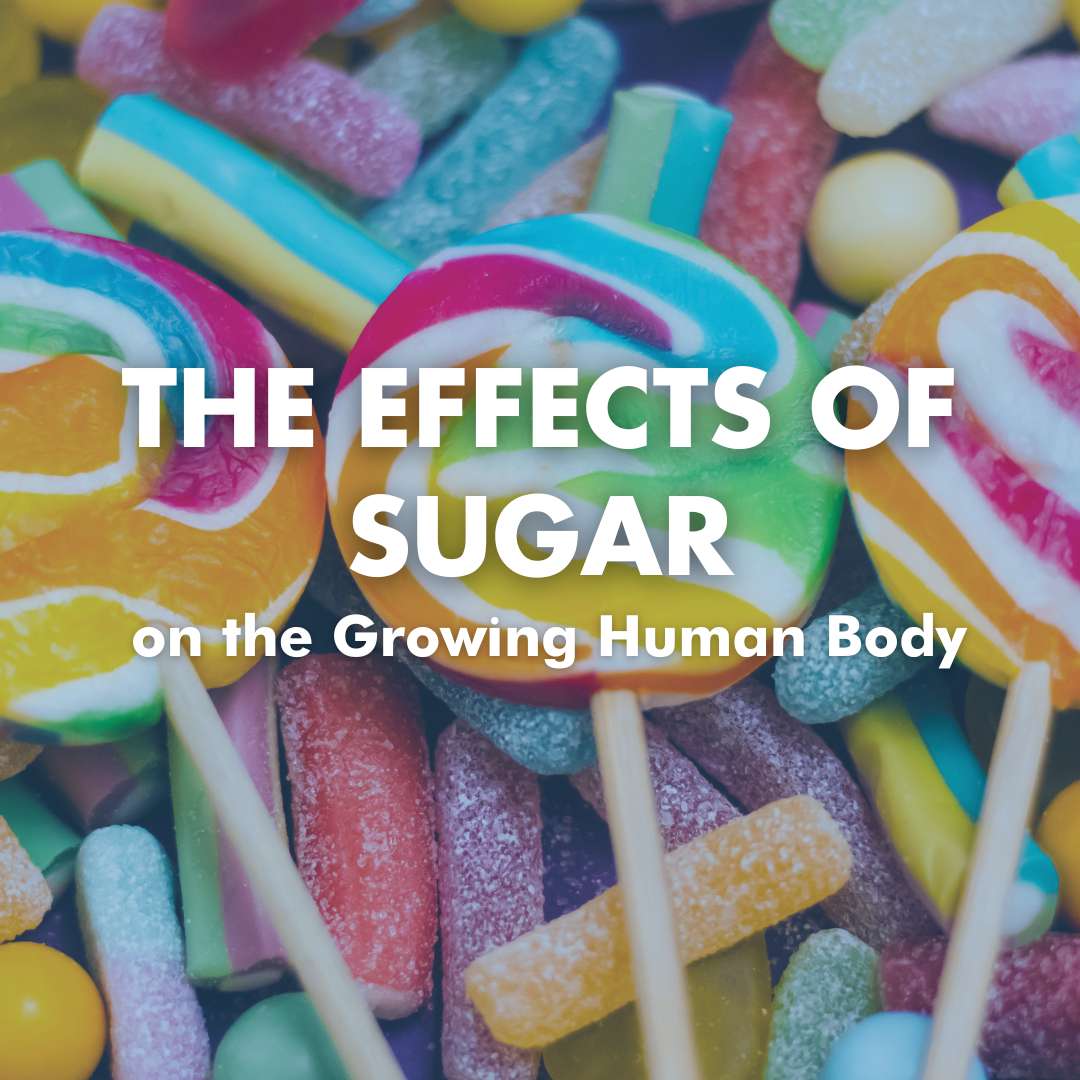The Effects of Sugar on the Growing Human Body
Did you know that the daily maximum amount of added sugar that the American Heart Association recommends for children ages 2 to 18 years old is 6 teaspoons or 25 grams?
That is equivalent to 1 mini can of coke (7.5 ounces), 3 regular-sized Reese’s Peanut Butter Cups, or half to three-fourths cup of Cinnamon Toast Crunch.
You also might be surprised to hear that the American Heart Association recommends that children and teens should not have more than 8 ounces of sugar-sweetened drinks per week.
Why does this matter? Here are three repercussions of daily excessive sugar intake.
Excessive sugar intake can cause increased weight gain and risk for obesity
Our body is usually very good at burning sugar for energy in the muscle. With recent decreases in level of physical activity along with increased sugar intake with common preferred foods, our youth are instead storing unused sugar as fat. As of 2009, 1 in 3 children in America are overweight. As patients increase in size, it becomes harder to move due to the increased pressure on joints and the energy needed to move the increased mass. Soon, it becomes a negative cycle of being unable to move because they are gaining weight and then gaining weight because they can’t comfortably move their bodies.
Excessive sugar intake can cause increased risk of developing disease at a younger age
Sugar that is not utilized by muscle and is either stored in the body or allowed to roam through the bloodstream increases the risk of developing detrimental health issues like chronic kidney disease, heart disease, stroke, neuropathy, and visual impairments (cataracts, glaucoma, and retinopathy). When there are other diagnoses involved such as ADD/ADHD, Autism, Cerebral Palsy, Epilepsy, Down Syndrome, developmental delay, and Spina bifida to name a few, the risk associated with high sugar intake can be more detrimental. The latter is due to the fact that many of these children are already having trouble with functional movement and have decreased independence with daily living skills. Having an unhealthy diet, consisting of increased amounts of sugar, puts everyone at a greater risk of developing debilitating conditions a lot sooner than previous generations.
Excessive sugar intake can cause increased behavioral issues
Diets high in sugar are linked to increased cognitive impairments and emotional disorders like anxiety and depression. Unlike adults who can better regulate themselves, seek help, choose to exercise, and communicate their needs and feelings, children instead may resort to destructive behaviors, tantrums, and rigid control when their bodies cannot process sugar appropriately. This makes functioning in school and therapy sessions difficult as their bodies are trying to process the sugar, causing dysregulation. This makes it harder for them to participate in safe, functional, and successful play.
Our role as pediatric therapists is to help children move their bodies in meaningful ways, and our job as adults is to give children the building blocks necessary to help those bodies be as healthy as possible, through conscious food choices and exercise!
References:
American Diabetes Association . (n.d.). Diabetes.org. Retrieved January 28, 2023, from https://diabetes.org/
Chai, C. (2016, August 23). How much sugar are your kids eating? take a look at 3 new sugar limit guidelines – national. Global News. Retrieved January 28, 2023, from https://globalnews.ca/news/2898066/how-much-sugar-are-your-kids-eating-take-a-look-at-3-new-sugar-limit-guidelines/#:~:text=The%20AHA%20released%20three%20new%20guidelines%3A%201%20Children,drink%20anything%20with%20added%20sugars%2C%20including%20sugar-sweetened%20drinks
Kubala, J. (2022, September 26). 11 reasons why too much sugar is bad for you. Healthline. Retrieved January 28, 2023, from https://www.healthline.com/nutrition/too-much-sugar#depression
Progress and challenges in metabolic syndrome in children and adolescents. professional.heart.org. (2009, January 12). Retrieved January 28, 2023, from https://professional.heart.org/en/science-news/progress-and-challenges-in-metabolic-syndrome-in-children-and-adolescents







